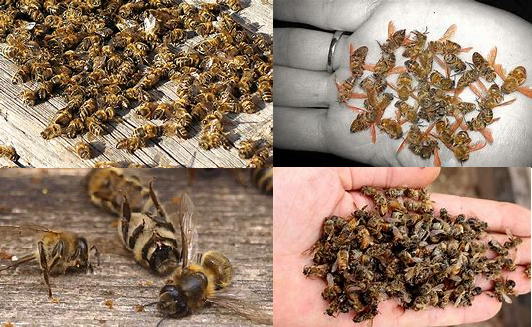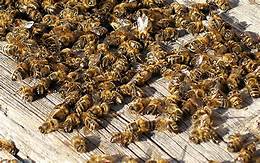What to do if you suspect poisoning
Full details can be found from the BeeBase The Wildlife Incident Investigation Scheme (WIIS) webpage
You should.
- Inform your local NBU Inspector or the National Bee Unit (email or phone 0300 3030094)
- Record as much detail as possible, including why you think pesticides are involved
- Note the weather conditions
- Take photos of the affected colonies and record the details of any witnesses
- Record the location as precisely as possible -GPS, What3Words, Google Maps
- Let our Spray Liason Officer know.
- Let the farmer know if you can.
- Feed the survivors with 1:1 syrup
The Local Bee Inspector or the National Bee Unit may ask for a sample of the affected bees. Details of how to do this can be found HERE
If you see any of the following symptoms, your bees may have been affected by a spraying event or another possible poisoning issue:
- Lack of flying bees around the apiary in a normally busy period
- Large numbers of dead bees outside the hive when the weather is good and the bees are foraging
- Fewer foraging bees at the entrance
- Poisoned bees denied entry to the hive
You may see
- Bees trembling, falling over and spinning on their sides
- Dead bees with their proboscis extended
- Colony may become aggressive and throw out infected bees
If the house bees are poisoned, the colony will shrink in size; dead larvae and pupae will be evident due to starvation and with few bees left the residue may abscond.

